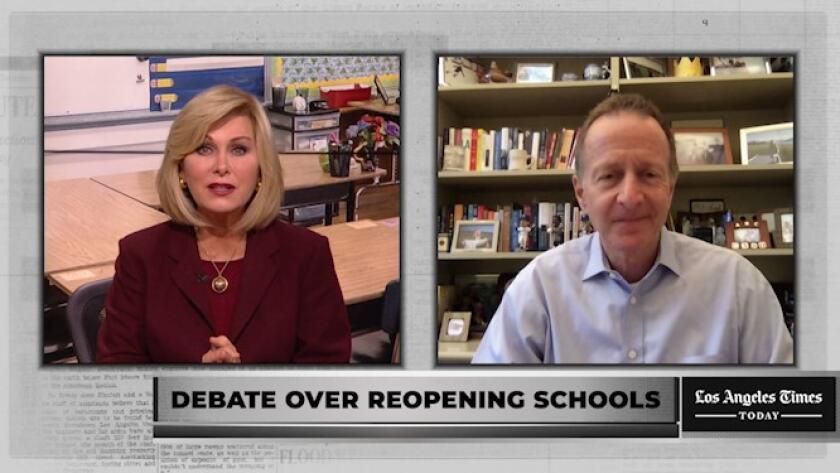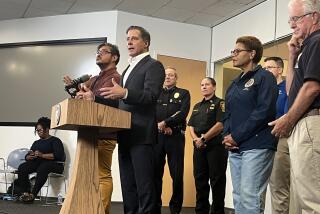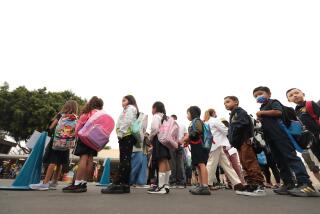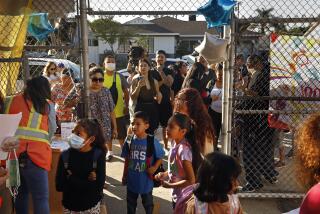Op-Ed: Getting kids back in classrooms should be a top pandemic priority, LAUSD superintendent says
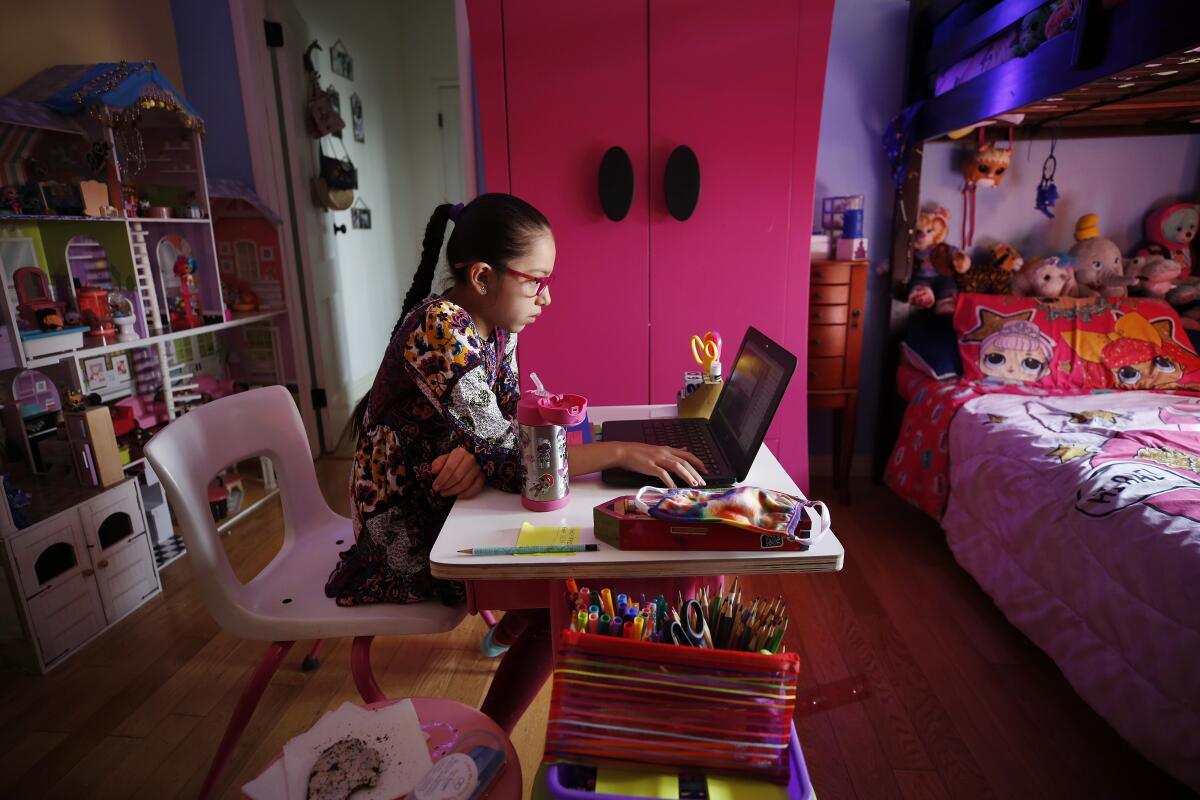
Tomorrow, if you were so inclined, you could take your family and walk into the Glendale Galleria without so much as a temperature check, and then spend hours browsing alongside hundreds of shoppers from all parts of Los Angeles.
What you cannot do is drop your children off at their neighborhood schools for a day of instruction in classrooms where access would be carefully controlled, students and desks carefully spaced apart, all rooms deep-cleaned daily and every student, teacher and staff member tested regularly for coronavirus.
Eight months into a pandemic that’s likely to stretch well into next year, the level of COVID-19 is rising, and our priorities are misplaced. Malls simply shouldn’t be a higher priority for reopening than public schools that provide millions of children with the foundations in reading, math and critical thinking they need to succeed in school and in life.
Schools must come first, not last. Prioritizing education requires every Californian — from the governor down — to take the steps necessary to lower community transmission to a level where it’s appropriate for kids and teachers to return to schools. Once they’re there, we’ll do our part to keep them — and the broader community — safe.
Without significant changes in policies and priorities, it is unlikely that schools in Los Angeles will reopen for in-person instruction any time soon. Under current rules, before they can reopen, the Los Angeles area would have to reduce the spread of the coronavirus enough to move out of the state’s highest level of exposure riskfor at least a month. That’s necessary to keep students, teachers and staff safe, but we haven’t come close to achieving that since the pandemic began. And things are getting worse, not better: Los Angeles County last week reported the highest number of new cases since the summer.
We cannot shrug off rising case counts as inevitable. All of us need to work to lower virus levels by wearing masks, social distancing, avoiding gatherings and staying home whenever possible so we can get children back to school.
Time away from teachers, friends and the structure of a classroom is harming children. Many students are struggling with online learning, in particular young learners, students learning English, students with differences and disabilities, and students who were struggling before school facilities closed. All students need the opportunity to be back in the classroom, where the best learning takes place.
Even before the pandemic, more than 80% of the students in the L.A. Unified School District came from families living below the poverty level, and estimates are that 75% of those families have had someone lose work due to COVID-19. The virus is having a disproportionate effect on low-income families. We must provide the option for students to be at schools if that’s what their families choose. And we have to do this in a way that protects the health and safety of all in the school community — students, staff and their families.
Rather than wait for the rest of society to reopen and stay open before we even contemplate reopening schools, California needs to recognize the vital role schools play in the lives of children and working families and make students a top priority.
Earlier this month, L.A. Unified led seven of the state’s largest school districts in asking Gov. Gavin Newsom to adopt a clear and consistent framework that could be applied across the state for all school districts to reopen. California has long maintained a set of strict standards for health, education and employee practices in schools. This crisis is not a time to lessen safety or education standards but to enforce them uniformly.
The effort should start with a mandate by the state to cities and counties to reduce the overall spread of the virus to acceptable levels. Schools cannot open until that happens. The state standards for reopening schools need to include safety practices such as cleaning, social distancing and grouping students in small cohorts, a robust, state-funded system of COVID-19 testing and contact tracing at schools, as well as guidelines for instruction, and protecting employees.
Once lower community spread of the virus is achieved and standards for health practices, instruction and employee protection are met, schools should open — and then we must work hard to keep them open even if it means curtailing other activities.
Regular coronavirus testing regimens in schools will provide early identification of infection even in students and staff who do not exhibit symptoms. It will also help health authorities isolate individuals with the virus so it does not spread further.
Longer term, this school-based health system will be useful when the time comes to help vaccinate children for COVID-19 at school, as was done with the polio vaccine during the polio epidemic in the 1950s. Post-COVID-19, an investment in school-based health systems could be a gift that keeps giving in high-needs communities. Children could even be provided with regular physicals as well as dental, hearing and vision exams. All at a place families trust and students attend almost every day.
Principals, teachers and school staff are making heroic efforts to keep students connected with school and help them continue to learn. But for many students, online learning pales in comparison to the education they receive at a school. And for some, the time away from a classroom will have a lifetime of consequences. We cannot prioritize a day at the mall over a lifetime of opportunity for a child.
Austin Beutner is superintendent of the Los Angeles Unified School District.
Watch L.A. Times Today at 7 p.m. on Spectrum News 1 on Channel 1 or live stream on the Spectrum News App. Palos Verdes Peninsula and Orange County viewers can watch on Cox Systems on channel 99.
More to Read
A cure for the common opinion
Get thought-provoking perspectives with our weekly newsletter.
You may occasionally receive promotional content from the Los Angeles Times.
